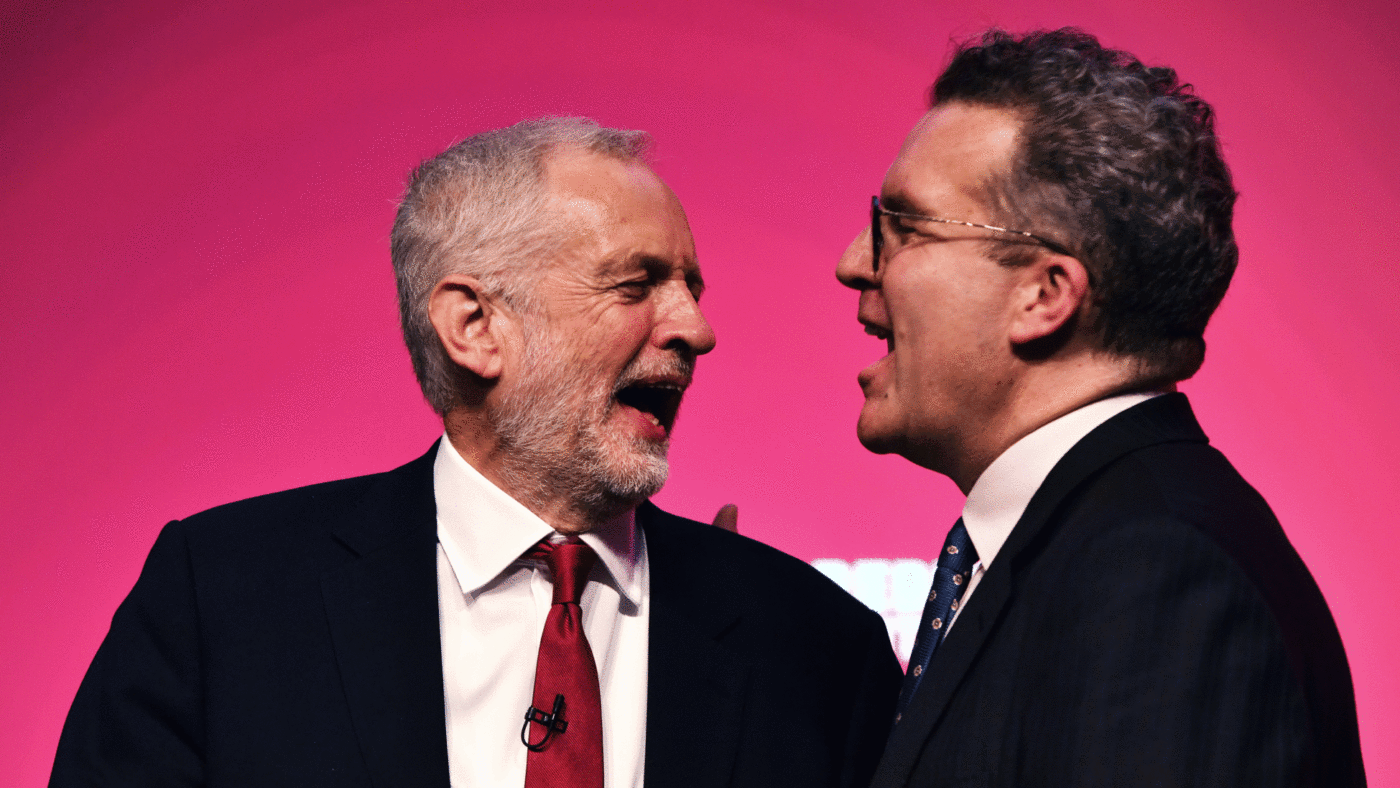Even now, at this late stage, and despite everything that has happened these past three years, Brexit retains a limitless capacity to amuse. That entertainment is sardonic, but bitter laughter remains preferable to despair.
How else, though, is anyone supposed to react to the latest iteration of Labour’s Brexit preferences? For a long time it has been apparent that Labour wishes to cultivate two gardens. One is an allotment for Remainers, who constitute the significant majority of Labour MPs and supporters; the other is for Leavers, especially in hard-pressed or otherwise distressed Labour “heartlands”. If you are a Remainer, Labour is for you and your best hope of reversing Brexit, but if you are a Leaver then Labour is your best hope of seeing the referendum result “honoured” in the first place.
The new politics is no kinder or gentler than the old politics but, like its predecessor, its adherents retain the right to appear all things to all people. If you like Brexit you need not worry about Labour and if you don’t like Brexit you need not worry about Labour either.
There is, to put it delicately, a certain tension between these positions. But then there is a certain tension evident between the party leadership and its supporters too. Even within the leadership, all is not well. Tom Watson, notionally the party’s deputy leader, is to all intents and purposes the leader of a party within a party – albeit one that is larger than the section of the party commanded by its leader.
The walls are closing in on Jeremy Corbyn. Even John McDonnell accepts Labour’s Brexit dithering is damaging and increasingly ludicrous. A party that cannot say what it wants is a party that cannot be trusted to lead. But Corbyn survives even as it becomes clear that the problem with Labour does not end with Corbyn. It is Corbynism itself that is the problem.
The new policy, reached after much internal agony, is presented as a political compromise but risks being an electoral disaster. Labour is opposed to a Tory Brexit but, still, not necessarily opposed to a Labour one. If the choice is between a Boris Johnson Brexit of any kind and Remain, Labour will campaign for a Remain vote in a referendum.
But if there were to be a general election and it were won by Labour, the party’s new position would be rather different. It would negotiate a new deal with the EU that was both somehow better than the deal negotiated by previous governments and this deal would then be presented to the electorate in a referendum in which there would be two choices: Labour’s deal or Remain.
All of which leads to the entertaining prospect of the Labour party negotiating their own new deal and then campaigning against it. Well, good luck selling that mud on the fabled doorsteps of Britain.
There are the makings of a great political novel in all of this. You fancy Graham Greene would do it well. The sect running the Labour party – Corbyn, Seumas Milne, Andrew Murray, and all the other assorted Trots and odds at the heart of the Corbyn project – are used to being in the minority. So much so, in fact, you suspect being embattled is their preferred psychological position. The world is against Jeremy which only goes to show how right he is. He would be more popular but for the dark forces conspiring against him; the fact of that conspiracy shows the fear he engenders which in turn confirms his righteousness.
Even so, if some concessions must be made to the pro-Remain – or at any rate anti-Brexit – feelings within the wider Labour movement it remains vital to retain some room for manoeuvre. It is important to remember that the habits of sects die hard; the Corbynites are experts in few things save chiselling. It is the politics of the student union – trivial and yet often exhausting – applied to a larger political stage.
Corbyn has been a eurosceptic all his political life. On the night Britain voted to leave the EU his political secretary Katy Clark cheerfully saw the upside to this refutation of the status quo. The United Kingdom would be leaving the EU’s “capitalist club”; the prospects for socialism in one country were blooming for the first time in forty years. This is who Corbyn’s people are, and there is no shame in insisting they be seen in their true light.
Labour MPs have only themselves to blame. They put Corbyn onto the Labour leadership ballot in the first place and then, when given the opportunity to remove him, launched a coup armed with nothing more dangerous than plastic spoons. Their recriminations and sorrow are worth less than they think.
The country as a whole, however, would benefit from a respectable opposition. That is does not have one at present is among the reasons British politics is in such a mess. Voters can respect politicians with whom they disagree, but only if those disagreements are aired publicly and with some measure of candour. Labour’s attempt to ride all the Brexit horses makes disagreement and respect impossible. It deserves to fail and the chief advantage of Labour’s new Brexit formulation is that it is hard to imagine how it can or could work.
CapX depends on the generosity of its readers. If you value what we do, please consider making a donation.


